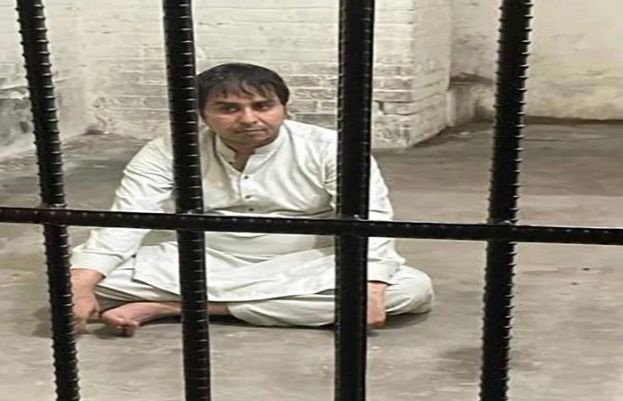
Suu Kyi, detained since the February 1 coup against her elected government, had been expected to face a court on Monday in connection with charges of illegally importing six walkie-talkie radios but a judge said her remand lasted until Wednesday, her lawyer, Khin Maung Zaw, said.
The February 1 coup and the arrest of Nobel peace prize winner Suu Kyi and others have sparked the biggest protests in Myanmar in more than a decade, with hundreds of thousands coming onto the streets to denounce the military’s derailment of a tentative transition to democracy.
“This is a fight for our future, the future of our country,” youth activist Esther Ze Naw said at a protest in the main city of Yangon.
“We don’t want to live under a military dictatorship. We want to establish a real federal union where all citizens, all ethnicities are treated equally.”
The unrest has revived memories of bloody outbreaks of opposition to almost half a century of direct army rule over the Southeast Asian nation, which ended in 2011, when the military began a process of withdrawing from civilian politics.
Violence this time has been limited but on Sunday, police opened fire to disperse protesters at a power plant in northern Myanmar although it was unclear if they were using rubber bullets or live rounds and there was no word on casualties.
As well as the demonstrations in numerous towns and cities, the military is facing a strike by government workers, part of a civil disobedience movement that is crippling many functions of government.
Armoured vehicles were deployed on Sunday in Yangon, the northern town of Myitkyina and Sittwe in the west, the first large-scale use of such vehicles since the coup.
More soldiers have also been spotted on the streets to help police who have been largely overseeing crowd control, including members of the 77th Light Infantry Division, a mobile force known for its brutal campaigns against ethnic minority insurgents and against protests in the past.
‘Don't swear’
More than a dozen police trucks with four water cannon vehicles were deployed on Monday near the Sule Pagoda in central Yangon, one of the main demonstration sites in the city, where protesters had gathered outside the central bank and the Chinese embassy.
At the bank, several hundred people quietly held up signs calling for colleagues to join the CDM — the civil disobedience movement. An armoured vehicle and about six trucks carrying soldiers were parked nearby, a witness said.
Police in the capital, Naypyitaw, detained about 20 high-school students protesting by a road. Images posted on social media by one of the students showed them chanting slogans of defiance as they were taken away in a police bus.
“Remember, we don’t swear at the police and don’t sign anything at the police station,” one student can be heard saying.
Media also showed orderly ranks of protesters marching in Naypyitaw with pictures of Suu Kyi with the message: “we want our leader”.
Suu Kyi, 75, spent nearly 15 years under house arrest for her efforts to end military rule.
The judge in the capital, Naypyitaw, had spoken to Suu Kyi by video conferencing and she had asked if she could hire a lawyer, Khin Maung Zaw told Reuters.
The government and army could not be reached for comment.
‘Desperation’
The army has been carrying out nightly arrests and has given itself sweeping search and detention powers. At least 400 people have been detained since the coup, the monitoring group Assistance Association for Political Prisoners said.
On Sunday, the military published penal code amendments aimed at stifling dissent and residents reported an internet outage after midnight on Sunday which lasted until about 9 am.
“It’s as if the generals have declared war on the people,” UN Special Rapporteur Tom Andrews said on Twitter.
“Late night raids; mounting arrests; more rights stripped away; another Internet shutdown; military convoys entering communities. These are signs of desperation. Attention generals: You WILL be held accountable.”
Suu Kyi’s party won a 2015 election and another on November 8 but the military said the vote was fraudulent and used that complaint to justify the coup. The electoral commission dismissed accusations of fraud.
Embassies representing the European Union, Britain, Canada and 11 others called on Sunday on the security forces to “refrain from violence against demonstrators and civilians, who are protesting the overthrow of their legitimate government”.
The amendments to the penal code, posted on a military website, include a 20-year prison term for inciting hatred of the government or military or hindering the security forces preserving state stability.
Spreading fear, fake news or agitating against government employees gets three years.
from latest-news - SUCH TV https://ift.tt/2OH9xiA

No comments:
Post a Comment